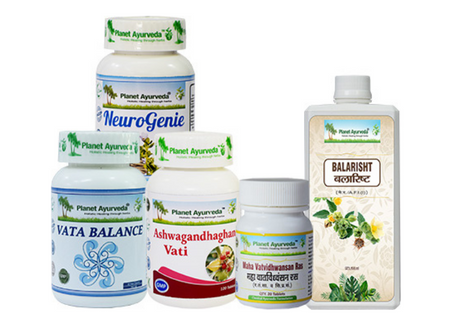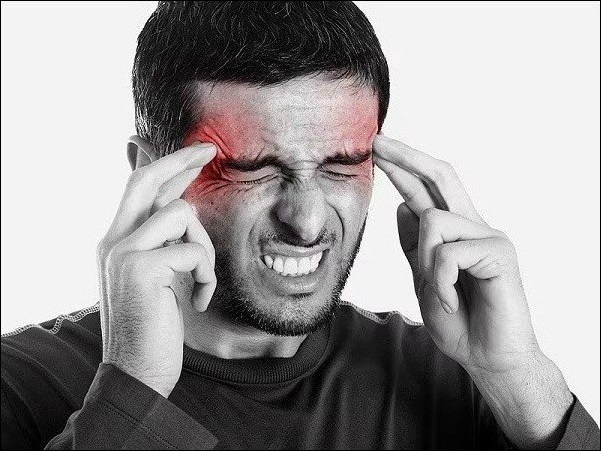Palmaris Brevis Spasm Syndrome Causes And Treatment By Ayurveda
Abstract
Neurological disorders are disorders that occur due to abnormality in the brain, neurons, nerves, and spinal cord due to structural deformity, damage due to injury, metabolic issues, and other various factors. These factors can result in a number of symptoms including pain, spasms, involuntary contraction and relaxation of the muscles, altered body functions, and others. In Ayurveda, there are three basic doshas, if within normal limits result in a healthy person and vitiation of the same cause diseases. Vata dosha is responsible for all the movements and neurological functions and vitiation of the vata dosha results in diseases related to the neurological system. Palmaris brevis spasm syndrome (PBSS) is also a neurological disorder that affects the palmar brevis muscle. In the following text, we shall see some detail of the condition and also discuss its management in the contemporary system of medicine as well as in the traditional system of the Indian medicinal system of Ayurveda. Let’s discuss it!!
Introduction
Palmaris brevis is a tiny rhomboid-shaped muscle that arises from the transverse carpal ligament and palmar aponeurosis and is inserted into the ulnar border of the palm of the hand and the action of the muscle is to elevate dimpling if the hypothenar eminence. The superficial branch of the ulnar nerve supplies the palmaris brevis muscle. It must be noted that the palmaris brevis muscle is not under voluntary control and its contraction is completely involuntary. Palmaris brevis spasm syndrome (PBSS) is characterized by spontaneous, irregular, and involuntary dimpling or contraction of the palmar brevis muscle. It can be bilateral or unilateral. In Ayurveda, the correlation of the Palmaris brevis spasm syndrome (PBSS) can be best established with vata dosha vitiation. We shall see its details further in this article. Now let’s see the causes, classification, features, management, and Ayurvedic aspect of the condition.
Causes of Palmaris brevis spasm syndrome (PBSS)
- The exact cause of Palmaris brevis spasm syndrome is unknown
- Acquired causes such as C8 root compression
- Ulnar nerve injury can result in Palmaris brevis spasm syndrome
Risk factors
- Workers or those who use vibratory tools
- Who works continuously using a keyboard and mouse
Signs and symptoms
- Irregular and involuntary dimpling of the hypothenar eminence
- Hyperactivity of the palmaris brevis muscle
Investigations
- Electromyography (EMG)
- CT Scan
- MRI
Differential diagnosis
- Anterior horn cell disease
Management of Palmaris brevis spasm syndrome
- Lignocaine block of ulnar nerve
- Phenytoin and carbamazepine
- Injection botulinum toxin
Ayurvedic aspect and management of Palmaris brevis spasm syndrome
- Ayurveda is a life science that focuses on the treatment of the disease from its root cause as well as on dietary and lifestyle management. Ayurveda has three basic dosha – vata, pitta, and kapha. All these doshas within normal limits result in a healthy individuality and any type of vitiation among them causes diseases. Vata dosha governs all the neurological functions of the body and all the contractions, relaxations of the muscles, movement of the blood in the vessels, etc. When the vata dosha stays within its normal limits all these functions are normally performed and the vitiation of the vata dosha hampers these processes and results in a number of symptoms including numbness, loss of sensory and motor functions, muscle twitching, irregular contractions and relaxations of the muscles, etc.
- Palmaris brevis muscle spasm syndrome is a condition that is characterized by the irregular and involuntary contraction of the palmar brevis muscle. As the contractions and relaxations of the muscles are controlled by the vata dosha and its normalcy these functions properly and vitiation leads to improper and uncoordinated contractions and relaxations. So on this ground, it can be said that the palmaris brevis spasm syndrome is due to the vata dosha vitiation and hence can be considered as a disorder of vata and can be named as vata roga.
- The management protocol is composed of correcting the vitiated vata dosha which will eventually correct the spasm of the palmaris brevis muscle.
- Herbs including Erand (Ricinus communis), rasna (Pluchea lanceolata), Shalparni (Desmodium gangeticum), Prishniparni (Uraria picta), Brihati (Solanum indicum), Kantakari (Solanum surattense), Gokshur (Tribulus terrestris), Gambhari (Gmelina arborea), Agnimantha (Clerodendrum phlomidis), Patla (Setreospermum suaveolens), shyonak (Oroxylum indicumn) ands bilva (Aegle marmelos), ashwagandha (Withania somnifera), bala (Sida cordifolia) and many other of great help in managing the condition of Palmaris brevis spasm syndrome.
- Herbal formulations including that vatchintamani ras, maha vidhwansan ras, rasnadi kwath, Baladi taila, sahachara taila, amritadi taila, rasna taila, chyawanprash, and many others are much helpful in vata roga which is regarded as Palmaris brevis spasm syndrome.
Herbal Remedies for Palmaris brevis spasm syndrome by Planet Ayurveda
Planet Ayurveda is an eminent GMP-certified, ISO 9001:2015 certified and US-FDA registered Ayurvedic Company, which adheres to the objective of manufacturing quality Ayurvedic products as mentioned in a number of ancient texts of Ayurveda. Formulations are manufactured without additives and preservatives and other kinds of chemicals or artificial flavoring agents which can have a number of side effects on the human body. Products manufactured at Planet Ayurveda are pure and devoid of any kind of adulteration. The products are purely organic, vegetarian, gluten-free, and halal-certified. Planet Ayurveda presents its product that effectively manages the condition of Palmaris brevis spasm syndrome.
Following is the list of formulations that are helpful in managing Palmaris brevis spasm syndrome
Product List
1. Neurogenic Capsules
2. Ashwagandhaghan Vati
3. Maha Vatvidhwabsan Ras
4. Balarisht
5. Vata Balance
Product Description
1. Neurogenic Capsules
Neurogenic capsules are composed of herbs that are mentioned as medhya in Ayurvedic texts. These herbs promote and improve neurological functions as per Ayurvedic texts. The formulation contains the herbs Brahmi (Bacopa monnieri) and ashwagandha (Withania somnifera). As these are beneficial in promoting muscle health and nerve conduction and coordination. The herbs used in pacifying the vata dosha. Neurogenic Capsules are therefore helpful in numbness, pain, reduced motor and sensory function, and other conditions of the neurological system. Therefore, these capsules effectively manage the condition of Palmaris brevis spasm syndrome.
Dosage: One capsule twice a day.
2. Ashwagandhaghan Vati
Ashwagandhaghan Vati is filled with the effectiveness of the herb ashwagandha (Withania somnifera) that possesses rasayana properties. Ashwagandha provides overall wellness. It rejuvenates the body cells. Further, it strengthens the muscles and helps in the demyelinating and degenerative conditions of the neurons. Therefore this property helps in the alleviation of associated symptoms of the above-said conditions and pacifies the vata dosha. Further, it improves neurological impulses thus helping in proper movements and sensations. With all these actions, Ashwagandhaghan Vati is helpful in managing Palmaris brevis spasm syndrome.
Dosage : Two tablets twice a day
3. Maha Vatvidhwabsan Ras
Maha vatvidhwansan ras is a classical herbomineral formulation that is an effective remedy to pacify the vitiated vata dosha. The formulation contains Shuddha parada (purified mercury), shuddha Gandhak (purified sulphur), Naga bhasma (lead calx), Loha bhasma (iron calx), Abhrak bhasma (calx of purified Mica), Pippali – long pepper (Piper longum), Black pepper (Piper nigrum), Shuddha Vatsanabha (purified Aconitum ferox), Bhringaraja (Eclipta alba), Amalaki (Emblica officinalis) and many others. As the name of the formulation suggests it primarily corrects the vitiated vata dosha. Correcting the vata dosha proves to be a formulation of choice in managing the condition of Palmaris brevis spasm syndrome.
Dosage: One tablet twice a day with plain water after meals
4. Balarisht
Balarisht is a classical herbal formulation that provides strength to the nerves and muscles. The formulation is composed of Bala (Sida cordifolia), ashwagandha (Withania somnifera), Dhataki Pushpa (Woodfordia fruticosa), Ksheer Kakoli (Fritillaria role), Erand Mool (Ricinus communis), Rasna (Pluchea lanceolata), Badi Elaichi (Amomum subulatum), Laung (Syzygium aromaticum), Khas (Vetiveria zizanioides), Gokshur (Tribulus Terrestris) and various others. Balarisht helps in Palmaris brevis spasm syndrome by pacifying the ata dosha and by strengthening the muscles and nerves. As it provides strength to these structures which helps in the proper conduction of the nerve impulses and also the regulation of the contraction and relaxation of the muscle. Hence this formulation is of great help in managing the above-mentioned condition.
Dosage : Two tsp twice a day with an equal amount of water
5. Vata Balance
Vata balance is a product of Planet Ayurveda which is filled with properties of herbs shalparni (Desmodium gangeticum), prishniparni (Uraria picta), brihati (Solanum indicum), kantakari (Solanum surattense), gokshur (Tribulus terrestris), gambhari (Gmelina arborea), agnimantha (Clerodendrum phlomidis), patla (Stereospermum suaveolens), shyonak (Oroxylum indicum) ands bilva (Aegle marmelos). All the herbs are known to pacify the vata dosha and thus manage the condition of Palmaris brevis spasm syndrome by regulating the normal functioning of the vata dosha and alleviating the irregular and involuntary spasmodic condition of the palmar brevis muscle.
Dosage : One capsule twice a day
CONTACT PLANET AYURVEDA TO PROVIDE YOU WITH THE COSTING / ORDERING AND DELIVERY INFORMATION AT – COSTING.PLANETAYURVEDA@GMAIL.COM OR CALL AT +91-172-5214040
Conclusion
As we discussed Palmaris brevis spasm syndrome, we came to know that the condition causes irregular and involuntary spasms of the palmaris brevis muscle which causes dimpling of the hyp[othenar eminence. Furthermore, the exact cause of the condition is unknown, and in Ayurveda, the condition is compared with the vata dosha vitiation as the vata dosha is responsible for muscle contractions and relaxations. Hence, by pacifying the vata dosha, the condition can be corrected. In the contemporary system of medicine, there is no proper management available to cure the condition though some of procedures can be performed which can cause a number of side effects. Whereas, the side-effects of free science help in managing the condition through herbal and herbomineral formulations that manage the condition positively and come up with positive results. Above mentioned products or formulations effectively pacify the vata dosha which eventually manages the Palmaris brevis spasm syndrome impeccably.





